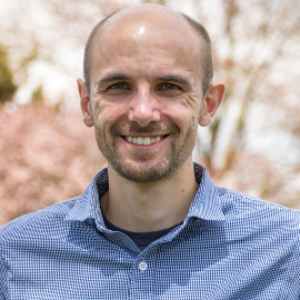Abstract:
Objective: This critical review of the literature concerns persistent headaches after subarachnoid hemorrhage (SAH), and discusses which patients are most at risk of developing these post-SAH headaches based off demographic and clinical features. We also discuss the pathophysiologic mechanisms by which these headaches occur, which medical and interventional treatments have the most evidence for pain alleviation, and what pre-clinical evidence is there for emerging treatments for these patients.
Background: Following initial stabilization and treatment of spontaneous SAH, most commonly due to aneurysmal rupture, persistent headache in the immediate inpatient setting and chronically after discharge are an important cause of morbidity. These persistent headaches often receive heterogenous treatment of uncertain efficacy, and the risk factors and pathophysiology of their development has received little study.
Results and Conclusion: Overall, these persistent headaches post-SAH are shown to decrease quality of life, have a multi-modal pathophysiology in their occurrence, and only a select few medications (reviewed herein) have been demonstrated to have efficacy in alleviation of these headaches while also harboring significant possible risks including vasospasm and re-bleeding. An effective treatment paradigm of these headaches will include trials of evidence-based therapeutics, rapid reduction of opioid medications if not effective, and consideration of multi-modal pain control strategies including nerve blocks.
Biography:
Brandon Lucke-Wold was born and raised in Colorado Springs, CO. He graduated magna cum laude with a BS in Neuroscience and distinction in honors from Baylor University. He completed his MD/PhD, Master’s in Clinical and Translational Research, and the Global Health Track at West Virginia University School of Medicine. His research focus was on traumatic brain injury, neurosurgical simulation, and stroke. At West Virginia University, he also served as a health coach for the Diabetes Prevention and Management program in Morgantown and Charleston, WV, which significantly improved health outcomes for participants. In addition to his research and public health projects, he is a co-founder of the biotechnology company Wright-Wold Scientific, the pharmaceutical company CTE cure, and was a science advocate on Capitol Hill through the Washington Fellow’s program.
He has also served as president of the WVU chapters for the American Association of Pharmaceutical Scientists, Neurosurgery Interest group, and Erlenmeyer Initiative Entrepreneur group. In addition, he has served as vice president for the graduate student neuroscience interest group, Nu Rho Psi Honor Society, and medical students for global health. He was an active member of the Gold Humanism Honor Society and Alpha Omega Alpha Honor Society. He is currently a member of the UF House Staff Council, Positive Culture Committee, Quality Improvement Committee, Board of Directors Alachua County Medical Society, and Accreditation Requirements Review Committee. He is married to Noelle Lucke-Wold and has two children. As a family, they enjoy running with their dogs, rock climbing, and traveling. In his spare time, Brandon frequently runs half marathons and 10ks together with is wife. Brandon also enjoys reading, playing piano, discussing philosophy, and playing chess. He is currently a Pgy5 neurosurgery resident at University of Florida with pursuing endovascular enfolded training and was awarded the Dempsey Cerebrovascular Research Fellowship.




